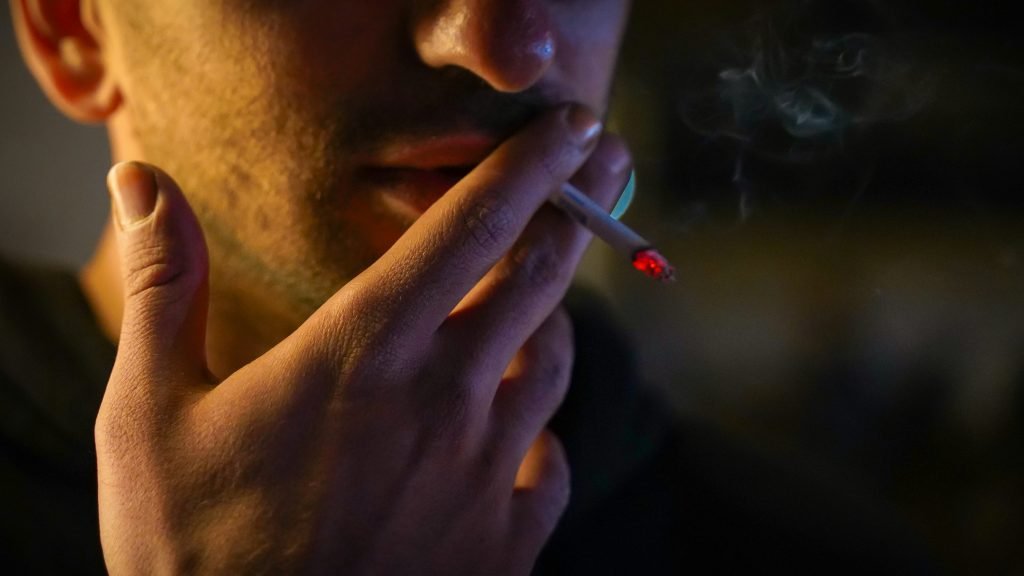Nasha Mukti Kendra is Trusted by Families Across Uttar Pradesh

Nasha Mukti Kendra is Trusted by Families Across Uttar Pradesh
Introduction: The Growing Need for De-addiction Support
Addiction is not just a personal struggle — it affects entire families, workplaces, and communities. In Uttar Pradesh, rapid urbanization, rising stress levels, and easy availability of addictive substances have contributed to a steady increase in alcohol, tobacco, and drug dependency. Families often try to handle these issues privately, but without structured support, recovery becomes difficult.
This is where Nasha Mukti Kendras (De-addiction Centres) play a transformative role. Across Uttar Pradesh, these rehabilitation facilities have earned the trust of thousands of families by providing professional treatment, compassionate care, and long-term recovery solutions. Rather than being places of punishment, they are centers of healing — offering a structured environment where individuals can regain control of their lives and reconnect with their loved ones.
What is a Nasha Mukti Kendra?
A Nasha Mukti Kendra is a specialized facility designed to help people overcome substance addiction — whether it involves alcohol, drugs, tobacco, or other harmful dependencies. These centres combine medical detoxification, psychological counseling, group therapy, and skill-building programs to address both the physical and emotional aspects of addiction.
- Medical detox removes harmful substances from the body under expert supervision, minimizing withdrawal risks.
- Therapy sessions help patients understand the root causes of addiction, such as stress, trauma, or peer pressure.
- Group programs create a sense of community, helping individuals realize they’re not alone.
- Rehabilitation plans prepare patients for a stable, addiction-free future by teaching coping strategies, life skills, and vocational training.
Why Families Trust Nasha Mukti Kendras in Uttar Pradesh
1. Professional and Compassionate Care
Families want assurance that their loved ones will be treated with respect, not judgment. Modern Nasha Mukti Kendras employ trained doctors, therapists, and counselors who understand addiction as a disease — not a moral failing. This compassionate approach encourages patients to open up, accept treatment, and actively participate in their recovery.
2. Safe and Supportive Environment
Recovery requires more than just willpower. Patients need a distraction-free, secure space where they can heal away from negative influences. Centres across Uttar Pradesh provide round-the-clock monitoring, healthy routines, and a substance-free environment, ensuring that individuals focus entirely on recovery.
3. Family Involvement in Treatment
Successful rehabilitation is a team effort. Many centres in UP organize family counseling sessions, where relatives learn how to provide emotional support without enabling addictive behaviors. This restores broken trust, strengthens relationships, and makes reintegration after rehab much smoother.
4. Holistic Healing Methods
Leading de-addiction centres do not just focus on quitting substances — they aim for total wellness. In addition to therapy, patients often engage in yoga, meditation, art therapy, fitness programs, and nutritional counseling. These practices help rebuild physical strength, mental clarity, and emotional balance.
5. Proven Track Records
Families place their faith in Nasha Mukti Kendras because they have seen real success stories. Individuals who were once trapped in cycles of addiction now lead productive lives, care for their families, and inspire others to seek help. Word-of-mouth recommendations and transparent operations further reinforce this trust.
The Rising Network of De-addiction Centres in Uttar Pradesh
From Lucknow, Kanpur, and Varanasi to smaller districts like Bijnor, Barabanki, and Ballia, Nasha Mukti Kendras are spreading across urban and rural areas. This wider presence means help is accessible to more people — even in locations where addiction was once a hidden problem due to stigma or lack of awareness.
Government initiatives, NGOs, and private organizations are collaborating to ensure these centres meet strict quality standards. Regular monitoring, licensing, and certification processes maintain credibility and reassure families about the safety and authenticity of the facilities.
Breaking the Stigma Around Addiction Treatment
One reason many families hesitate to approach a Nasha Mukti Kendra is fear of social judgment. Addiction is still wrongly seen as a personal weakness rather than a medical issue. However, public awareness campaigns, positive testimonials, and increased media coverage are slowly changing this mindset.
Today, more families in Uttar Pradesh understand that seeking help is a sign of strength, not shame. When someone attends a de-addiction centre, it’s not because they have “failed” — it’s because they are choosing to live. This shift in perception has made these centres widely accepted and trusted.
What Happens After Rehab? The Role of Aftercare
Families trust Nasha Mukti Kendras because treatment doesn’t stop the day a patient leaves the centre. Aftercare programs — such as follow-up counseling, relapse prevention plans, and alumni support groups — ensure that individuals stay committed to sobriety long after completing rehabilitation.
These programs often include:
- Regular progress check-ins to monitor mental and physical health.
- Community support meetings to share experiences and stay motivated.
- Emergency assistance if someone feels at risk of relapse.
By involving both patients and their families in long-term recovery plans, these centres create a safety net that reduces the chances of falling back into addiction.
How to Choose a Reliable Nasha Mukti Kendra in Uttar Pradesh
With several options available, it’s essential to pick the right facility. Families typically look for:
- Proper licensing and government certification.
- Qualified doctors and trained therapists.
- Clean, safe, and comfortable infrastructure.
- Transparent treatment plans and affordable costs.
- Positive reviews and testimonials from former patients.
- Family-friendly policies allowing visits and counseling participation.
When these criteria are met, trust grows naturally, and families feel confident about sending their loved ones for treatment.
Real Stories, Real Hope
In cities like Lucknow and Allahabad, there are countless examples of young students, professionals, and even senior citizens who have recovered from years of substance dependence. Parents have seen their children return to school, spouses have rebuilt marriages, and communities have welcomed individuals back as productive members of society.
Hearing these success stories gives other families the courage to take the first step. Hope is contagious. When one person recovers, it inspires many others to believe in the possibility of change.
Conclusion: A Trusted Partner on the Road to Recovery
Addiction is a tough battle, but no one has to fight it alone. Nasha Mukti Kendras in Uttar Pradesh have become pillars of hope and trust because they offer professional care, emotional support, and proven recovery strategies.
For families watching a loved one struggle, these centres provide more than just treatment — they provide reassurance that healing is possible, that relationships can be rebuilt, and that life after addiction can be full of dignity, health, and purpose.
By choosing the right facility and staying actively involved, families can transform fear into faith, and despair into hope. Across Uttar Pradesh, countless lives stand as living proof that recovery is real — and a Nasha Mukti Kendra can be the first step toward it.


 List Your Business
List Your Business